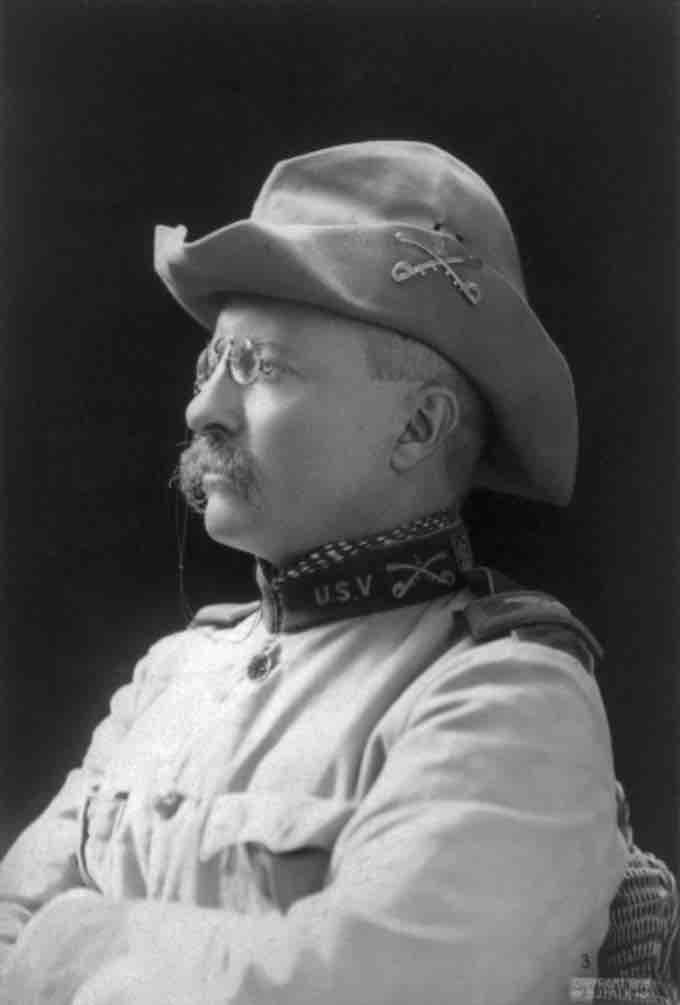The Progressive Era was a period of widespread social activism and political reform across the United States, from the 1890s to 1920s. The main objective of the Progressive movement was eliminating corruption in government. The movement primarily targeted political machines and their bosses. By taking down these corrupt representatives in office, a further means of direct democracy would be established. They also sought regulation of monopolies ("trust-busting") and corporations through antitrust laws. These antitrust laws were seen as a way to promote equal competition for the advantage of legitimate competitors. The main statutes are the Sherman Act of 1890, the Clayton Act of 1914, and the Federal Trade Commission Act of 1914.
Many Progressives supported prohibition in the United States in order to destroy the political power of local bosses based in saloons. At the same time, women's suffrage was promoted to bring a "purer" female vote into the arena. These two issues in the movement brought about constitutional change. The Eighteenth Amendment, passed in late 1917, banned the manufacturing, sale, and transport of alcohol, while the Nineteenth Amendment, passed in 1919, gave women the right to vote.
Another theme was building an Efficiency movement in every sector that could identify old ways that needed modernizing, and that could bring to bear scientific, medical, and engineering solutions. A key part of the Efficiency movement was scientific management, or "Taylorism." Although scientific management as a distinct theory or school of thought was obsolete by the 1930s, most of its themes are still important parts of industrial engineering and management today. These include analysis, synthesis, logic, rationality, empiricism, work ethic, efficiency and elimination of waste, and standardization of best practices.
Many activists joined efforts to reform local government, public education, medicine, finance, insurance, industry, railroads, churches, and many other areas. Progressives transformed, professionalized, and made "scientific" the social sciences, especially history, economics, and political science. In academic fields, the day of the amateur author gave way to the research professor who published in the new scholarly journals and presses.
Initially the movement operated chiefly at local levels; later, it expanded to state and national levels. Progressives drew support from the middle class, and supporters included many lawyers, teachers, physicians, ministers, and business people. Some Progressives strongly supported scientific methods as applied to economics, government, industry, finance, medicine, schooling, theology, education, and even the family. They closely followed advances underway at the time in western Europe and adopted numerous policies, such as a major transformation of the banking system through the creation of the Federal Reserve System in 1913. Reformers felt that old-fashioned ways meant waste and inefficiency, and they eagerly sought out the "one best system."
Leaders in the Progressive Era
National Progressive political leaders included Theodore Roosevelt, Robert M. La Follette Sr., and Charles Evans Hughes on the Republican side, and William Jennings Bryan, Woodrow Wilson, and Al Smith on the Democratic side. Many others, from politicians to social activists, business owners to philosophers, and preachers to reporters, contributed to the Progressive movement. The following are examples of a few major figures:
Following the assassination of President McKinley in September 1901, Theodore Roosevelt, at age 42, succeeded to the office, becoming the youngest U.S. president in history. Leading his party and country into the Progressive Era, he championed his "Square Deal" domestic policies, promising the average citizen fairness, broken trusts, railroads regulations, and pure food and drugs. Making conservation a top priority, he established a myriad of new national parks, forests, and monuments intended to preserve the nation's natural resources. In foreign policy, he focused on Central America, where he began construction of the Panama Canal. His successful efforts to end the Russo-Japanese War won him the 1906 Nobel Peace Prize.
Susan B. Anthony (February 15, 1820–March 13, 1906) was an American social reformer and feminist who played a pivotal role in the women's suffrage movement. In 1851, she met Elizabeth Cady Stanton, who became her lifelong friend and coworker in social-reform activities, primarily in the field of women's rights. In 1852, they founded the New York Women's State Temperance Society after Anthony was prevented from speaking at a temperance conference because she was a woman. In 1878, Anthony and Stanton arranged for Congress to be presented with an amendment giving women the right to vote. Popularly known as the "Anthony Amendment" and introduced by Senator Aaron A. Sargent (R-CA), it became the Nineteenth Amendment to the U.S. Constitution in 1920.
Upton Sinclair (September 20, 1878–November 25, 1968) was an American author who wrote nearly 100 books and other works across a number of genres. In 1906, Sinclair acquired particular fame for his classic muckraking novel, The Jungle, which exposed conditions in the U.S. meat-packing industry and caused a public uproar that contributed, in part, to the passage a few months later of the 1906 Pure Food and Drug Act and the Meat Inspection Act. In 1919, he published The Brass Check, a muckraking exposé of American journalism that publicized the issue of yellow journalism and the limitations of the “free press” in the United States. Four years after the publication of The Brass Check, the first code of ethics for journalists was created. Writing during the Progressive Era, Sinclair describes the world of industrialized American from both the working man's point of view and the industrialist's. Novels such as King Coal (1917), The Coal War (published posthumously), Oil! (1927), and The Flivver King (1937) describe the working conditions of the coal, oil, and auto industries at the time.

Theodore Roosevelt
A portrait of President Theodore Roosevelt.